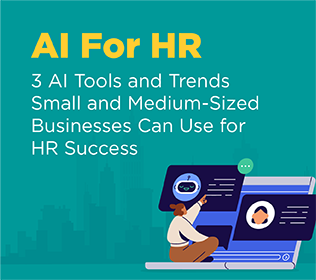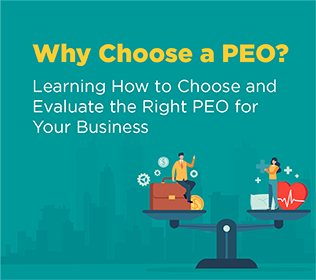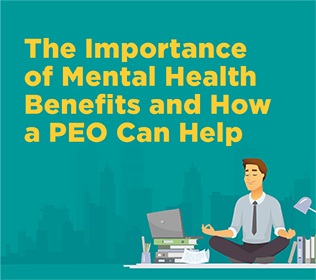
For small to mid-sized businesses, it’s difficult to manage the behind-the-scenes processes to run a company smoothly. Hiring an entire internal HR team can be a sizable financial lift that may not be feasible when trying to grow a business. However, who will handle benefits, compliance, and payroll without an HR team? Often, this falls on you, the company owner, though it may not be your area of expertise. This work can also be time-consuming, which means that you’re spending most of your time on paperwork rather than growing your company.
Rather than struggle to hire and afford an internal HR team, these companies turn to a PEO or an HRO. They both perform similar tasks – they take on the duties of an HR team. However, they have distinct differences that are helpful to review before deciding which is right for your business.
Understanding the Function of a PEO and HR outsourcing company
A PEO (professional employer organization) acts as a co-employer and performs more services for its clients and shares the financial risk of your business. An HRO (human resources outsourcing) only provides the specific services that you choose.
One of the primary reasons to use a PEO or an HRO is employee benefits. As a small to mid-sized business, it can be difficult to afford health insurance, especially the premium benefits that many prospective employees seek. If you don’t offer competitive health insurance packages, you will likely lose the best candidates to other companies. Additionally, if your health insurance packages are too expensive, this can also deter candidates from accepting your offer, or it could cause current employees to start looking elsewhere. As your co-employer, a PEO pools you and your team with all the other companies they also serve. This way, your team of 10 suddenly has the participation power of a company with 500 employees. This lowers costs, and you can offer affordable healthcare and superior benefits. An HRO can also administer your employee benefits, but they will not have the same buying power as a PEO. They can relieve the burden of managing certain aspects of your business, like benefits and payroll, but not much else.
Another benefit of using a PEO is that they will assist you with your compliance, labor law, and risk management. A small business may not have the resources or the experience to administer the training required by your state. However, if you are discovered to be neglecting something your state has mandated, you could run into serious legal trouble. When you partner with a PEO company, this risk is shared by your PEO. The PEO will ensure that you are within regulation for all local, state, and federal laws that affect your business. An HRO can also manage your compliance needs, but only if this is a service you choose to add.
One thing to note about choosing a PEO is to select the correct PEO. The PEO acts as your co-employer and shares your business risk, but an unscrupulous PEO could take unnecessary control. Look for a PEO that is certified by the industry’s highest standards. Those are the Certified Professional Employer Organization (CPEO), Employer Services Assurance Corporation (ESAC), and the Certificate Institute’s Worker’s Compensation Certification. These certifications are only awarded to the PEOs who adhere to the strictest requirements and standards.
Overall, the main difference between a PEO and an HRO is that a PEO is a one-stop-shop. When you enter a partnership with a PEO, all of your HR needs are taken care of including, taxes, W2s, benefits administration, HR management, and more. An HRO can do some of these tasks, but you have to choose them individually, and they do not provide any additional HR support.
Which makes more sense for my business?
Only you can decide what’s right for your business, but a PEO offers more support and resources than an HRO. An HRO may have a lower start-up cost, but because they do not provide the healthcare benefits discount that a PEO does, they are often more expensive in the long run. A PEO also serves as an important resource to your company, and they are available to answer your HR questions at any time. An HRO does not provide the same personalized support.
Are you interested in experiencing the difference at PrestigePEO? We are triple certified by CPEO, ESAC, and CI, and we consistently provide best-in-class service. We will handle your HR management, provide fortune 500 employee benefits at affordable prices, manage your compliance needs, run your payroll, and offer retirement plans. And unlike many other PEOs and HROs, you will never need to speak to a chatbot or a call center. We offer each of our clients a dedicated HR team that knows the ins and outs of your business. We’d love to show you! Contact us here.




